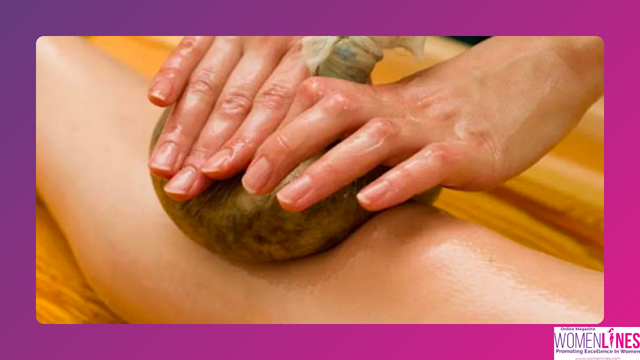Natural Healing Methods for Knee Ailments
Knee pain is a prevalent issue affecting individuals due to factors such as age, injury, or medical conditions like arthritis. Ayurveda, an ancient Indian medicinal system, offers a holistic approach to treating knee pain by addressing the root cause of discomfort through personalized treatments. Ayurvedic therapies focus on restoring the body’s balance, detoxifying to remove toxins, and strengthening the digestive system.
This comprehensive approach incorporates herbal remedies, oils, dietary adjustments, and specific exercises like yoga to alleviate knee pain and promote overall wellness. Understanding the nature of knee pain and its various causes is crucial for tailoring effective Ayurvedic interventions.
Ayurvedic Understanding of Knee Pain
Ayurveda views knee pain as a manifestation of imbalances in the body’s three doshas—Vata, Pitta, and Kapha. The accumulation of toxins (Aama) due to weak digestion is often cited as a primary cause. The treatment in Ayurveda begins with restoring digestive strength (Agni) and eliminating toxins, which is considered fundamental for rebalancing the body and alleviating knee pain.
Ayurvedic Treatments
-
Inflammatory Knee Pain (Ama Accumulation):
- Detoxification (Shodhana): Ayurvedic treatments focus on purifying the body to eliminate accumulated toxins. This can range from dietary adjustments to Panchakarma—a comprehensive detoxification process involving therapies like Virechana (therapeutic purgation) or Basti (enema therapy).
- Herbal Medicines: Ayurvedic herbs like Guggulu, Eranda Sneha, Narayana Tail, and Nirgundipatra are recommended for their detoxifying and anti-inflammatory properties.
- Degenerative Knee Pain (Vata Aggravation):
- Regenerative Treatments: Ayurveda emphasizes the restoration of nutrient cells and joint strength through therapies such as Ksheera Vasthi (medicated milk enema) or Tailadhara (medicated oil massage).
- Pain Management: Medicinal preparations like Shallaki (Indian frankincense) are used to reduce pain, inflammation, and swelling associated with degenerative knee conditions.
Therapies and Procedures
Ayurvedic treatments for knee pain involve a variety of therapies tailored to individual needs:
- Abhyanga (Therapeutic Massage): Helps in improving circulation and reducing stiffness.
- Janu Basti: Involves pouring warm medicated oil over the knee joint, beneficial for various knee conditions including IT band syndrome and arthritis.
- Dhanyamladhara, Podikkizhi: Other therapeutic procedures aimed at reducing pain and inflammation.
Home Remedies and Diet
Ayurveda emphasizes the importance of dietary adjustments and home remedies for managing knee pain:
- Turmeric Milk: Drinking warm milk with turmeric is advised for its anti-inflammatory properties.
- Fenugreek Paste: Applying a paste of roasted fenugreek seeds on the knee can help alleviate pain.
- Ginger: Consuming ginger tea or applying ginger paste locally can provide relief due to its anti-inflammatory effects.
 Ayurvedic Herbs and Oils
Ayurvedic Herbs and Oils
Certain herbs and oils are recommended in Ayurveda for their beneficial effects on knee pain:
- Ajwain: Known for its anti-inflammatory and anesthetic properties, used either topically or internally.
- Dashamool: A combination of ten herbs with anti-inflammatory properties, available in various forms like churna (powder) or liquid.
- Eucalyptus Oil: Massaging with eucalyptus oil can help reduce swelling and pain.
Lifestyle Recommendations
- Diet: Following a Vata-pacifying diet, including warm and nourishing foods, and avoiding cold or dry foods that can aggravate Vata.
- Exercise: Ayurveda emphasizes gentle exercises like specific yoga poses tailored for knee health, which can improve joint mobility and strengthen surrounding muscles.
- Rest and Relaxation: Adequate rest and meditation are also essential for holistic healing and recovery.
Conclusion
Ayurvedic treatments for knee pain offer a holistic approach by addressing the underlying imbalances in the body through a combination of detoxification, herbal remedies, dietary modifications, and therapeutic exercises. By restoring equilibrium and enhancing the body’s natural healing abilities, Ayurveda aims not just to alleviate knee pain but to promote overall well-being and longevity. It is essential to consult with qualified Ayurvedic practitioners for personalized treatment plans based on individual constitution and specific health needs.
Also Read, Explore Legal Careers Beyond Law School Requirements
Follow Womenlines on Social Media














